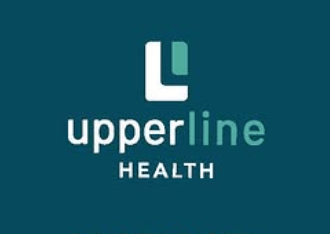Nashville-based Upperline Health has quietly developed a healthcare model that seems remarkably effective, particularly for older patients managing complicated chronic conditions—a demographic that is sometimes overlooked. While hospital volume and procedural intensity are frequently prioritized by larger health systems, Upperline has taken a remarkably different approach. They have created a care structure that is both incredibly effective and incredibly human by emphasizing prevention, coordination, and prompt action.

Upperline has created what can only be characterized as a significantly enhanced care model through direct collaboration with Medicare and Advantage providers. Same-day care is now available to patients who previously had to wait weeks to see a specialist. This prompt access has clinical significance in addition to being convenient. Emergency hospitalizations are greatly decreased when chronic conditions like diabetic neuropathy or vascular disease are identified and treated early. This isn’t a hypothetical advantage. Real-life examples illustrate this, such as the Memphis diabetic grandmother who was spared amputation after receiving 24-hour treatment for her foot ulcers at an Upperline clinic.
| Attribute | Details |
|---|---|
| Name | Upperline Health |
| Industry | Specialty Healthcare Services |
| Core Services | Podiatry, Vascular Care, Chronic Disease Management, Preventative Medicine |
| Operating Philosophy | Treatment-first, not triage-only |
| Primary Audience | Medicare, Medicare Advantage, and commercial insurance patients |
| Accessibility Features | Same-day visits, home appointments, 24/7 phone support |
| Main Office Location | 4101 Charlotte Avenue, Suite F185, Nashville, TN 37209 |
| Mental Health Support | Yes, integrated with clinical and wellness programs |
| Signature Program | Upperline Plus – holistic support and navigation for Medicare members |
| Contact Number | 877-206-0146 |
| Official Website | www.upperlinehealth.com |
Treatment over triage is the company’s defining philosophy, which sets it apart from overcrowded ERs and urgent care chains. For Medicare beneficiaries, who frequently experience care fragmentation due to bouncing between providers who hardly ever communicate, their model is especially helpful. With Upperline, a single team manages everything from pharmacy consultations to podiatry, resulting in a safety net that is not only thorough but also incredibly transparent in its communication.
Although it may seem optional to traditional providers, Upperline has made investments in mental health services in recent years. This move is incredibly versatile when it comes to treating seniors with chronic pain. Upperline has addressed mental resilience, a component of healing that is frequently disregarded, by incorporating behavioral specialists into physical health teams. When treatment feels emotionally supportive and well-coordinated, a patient who is dealing with both depression and vascular complications is more likely to stick to their treatment plans.
Value-based care has rapidly gained traction in the larger healthcare industry in recent years. Upperline has established itself as a quiet leader in this field thanks to strategic alliances with health plans and an unwavering emphasis on results. They have been able to provide care that is both noticeably more individualized and substantially faster than traditional methods by combining same-day interventions with long-term monitoring.
This innovation is further expanded by the organization’s flagship Medicare care coordination program, Upperline Plus. Participants in this program receive comprehensive wellness evaluations, pharmacy reviews, home visits, and access to clinicians and dieticians. It’s a package meant to uplift as well as treat. This degree of wraparound care can make the difference between institutionalization and independence in the context of aging.
The geographic strategy employed by Upperline is among its most captivating features. Upperline has quietly set up clinics in rural and underserved areas throughout the South, while many telemedicine startups aim for urban markets. Specialty care is very scarce in these areas, and health outcomes have historically been poor. By entering these markets, Upperline is doing more than just growing; it is bridging the risky gaps created by a malfunctioning system.
The implications are especially novel for industry analysts and policymakers. Medicare’s financial balance could be altered by a system that effectively lowers hospitalizations, avoids more serious complications, and provides care through affordable outpatient visits. The unsustainable burden that hospitals and taxpayers currently bear could be greatly reduced if Upperline’s model were implemented nationally.
Millions of people relied on remote care during the pandemic. It turned into the last proof of concept for Upperline. They developed a patient experience that was not only reactive but also highly responsive by providing telehealth check-ins, remote monitoring tools, and round-the-clock phone triage. Patients could now call a nurse, get instructions, and, if necessary, be seen in person within hours, eliminating the need for them to consider whether their symptoms warranted a hospital stay.
Although this care network’s technological foundation isn’t particularly impressive, it is incredibly dependable. Teams can respond quickly and cooperatively thanks to centralized medical records, real-time care updates, and mobile alerts. This lessens confusion and duplication for clinicians. It helps patients develop trust. According to one caregiver, it’s like being a part of a “constant medical conversation”—a never-ending buzz of awareness that enhances results and lessens anxiety.
The business has significantly increased access for patients who usually have mobility or digital literacy issues through strategic partnerships. For instance, upperline teams frequently assist patients with appointment reminders, insurance paperwork, and medication renewals. Together, these seemingly insignificant details remove obstacles that could undermine even the most effective care plans.
The push to make healthcare more sustainable will only increase in the years to come. Upperline will be a model for others if it can continue to provide highly individualized and cost-effective care. Not only for elder care, but also for our attitudes toward action, empathy, and accessibility.
Upperline is improving the definition of a chronic care checklist, much like Dr. Atul Gawande improved the discussion of checklists in surgery. Furthermore, Upperline’s story is based on something more personal—real people who are seen promptly, given considerate treatment, and led back to health—in contrast to many corporate health systems that are motivated by mergers and margins. They are more than just a participant in a healthcare era that demands better because of their unwavering mission.




